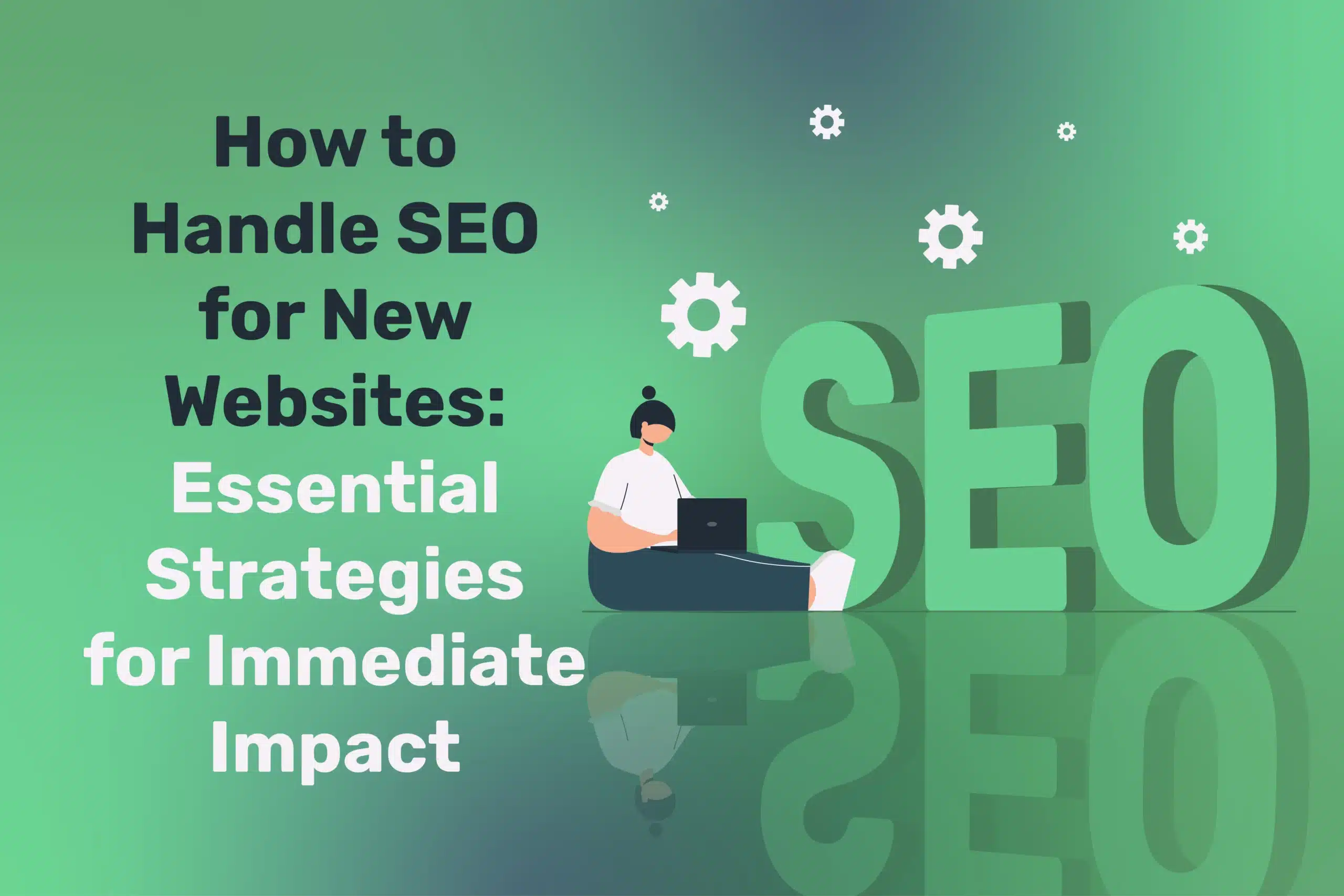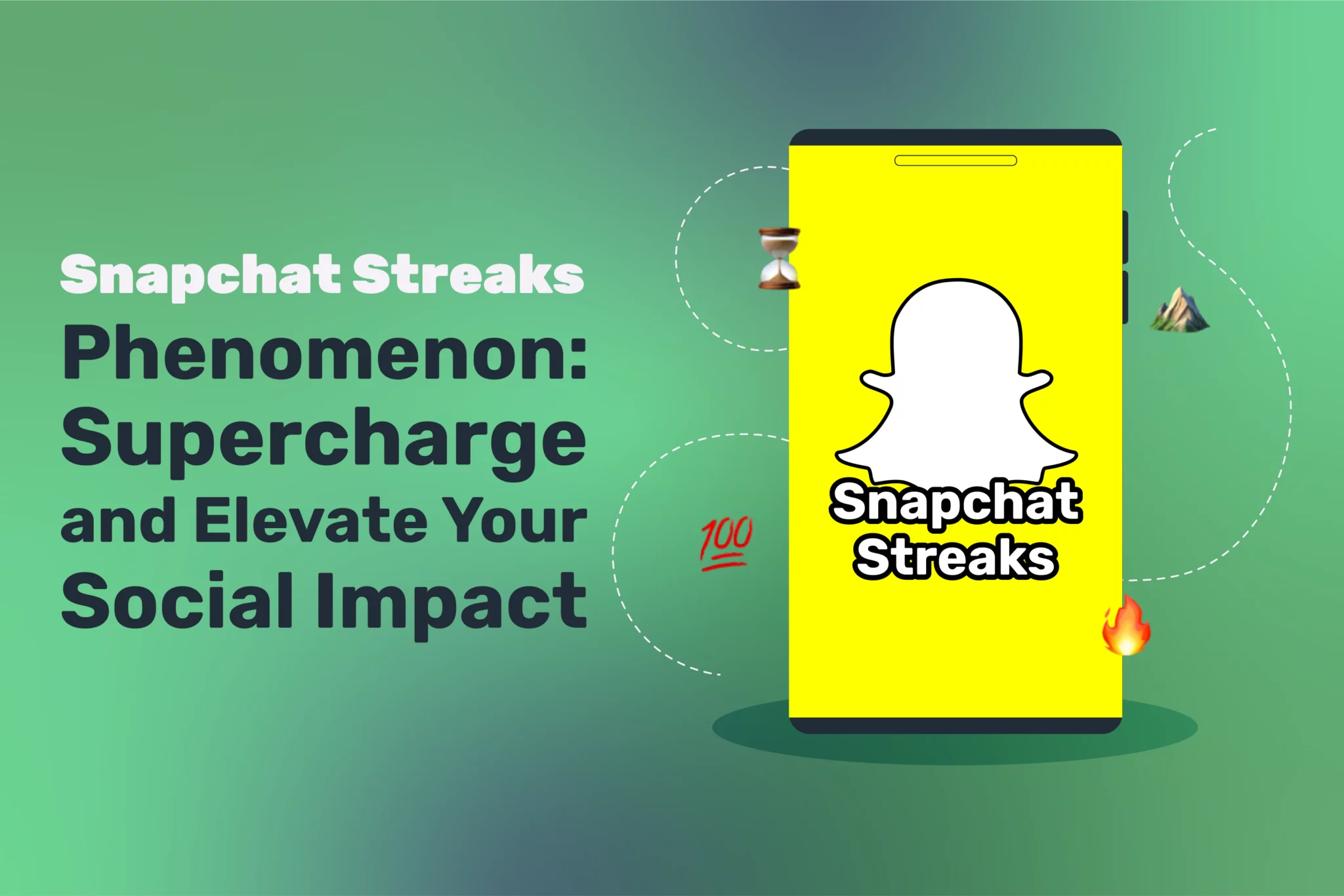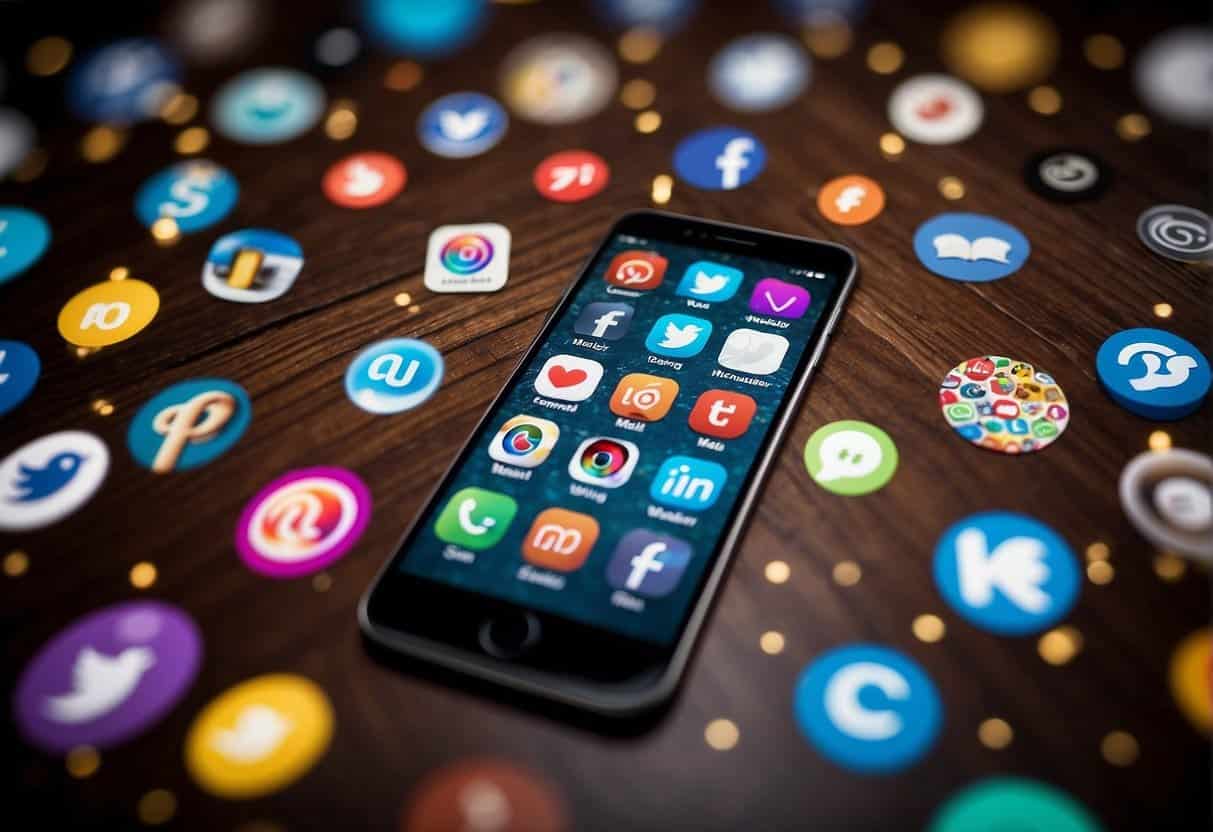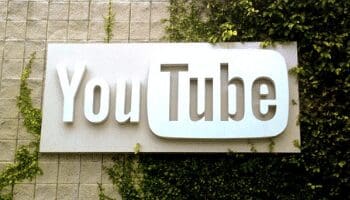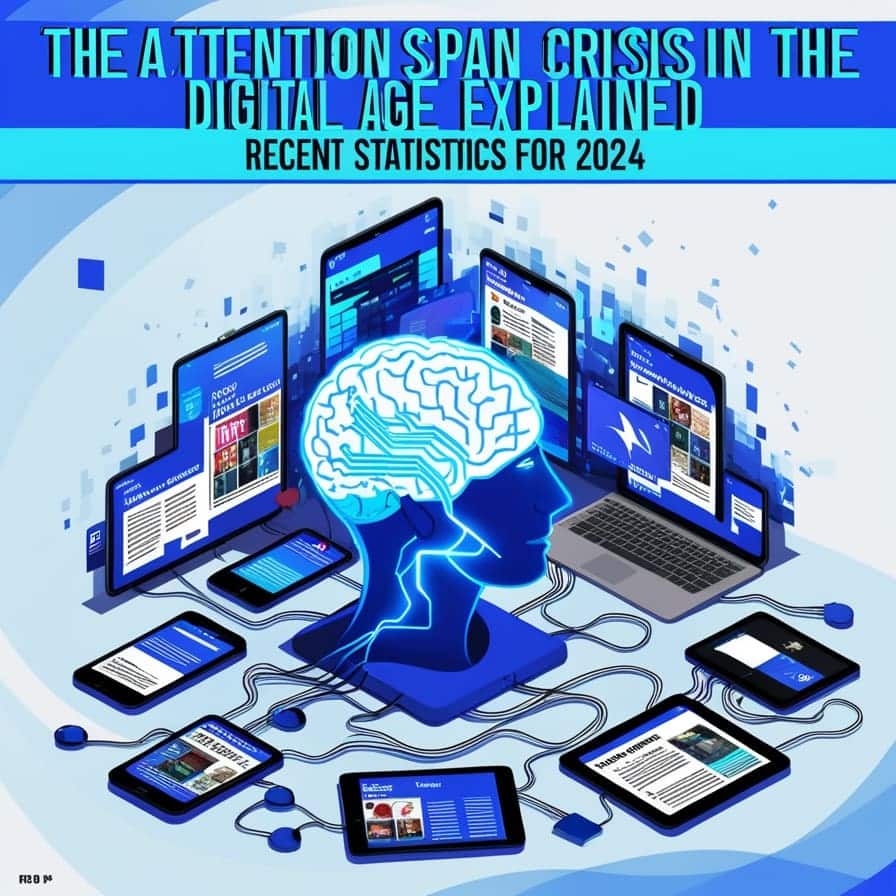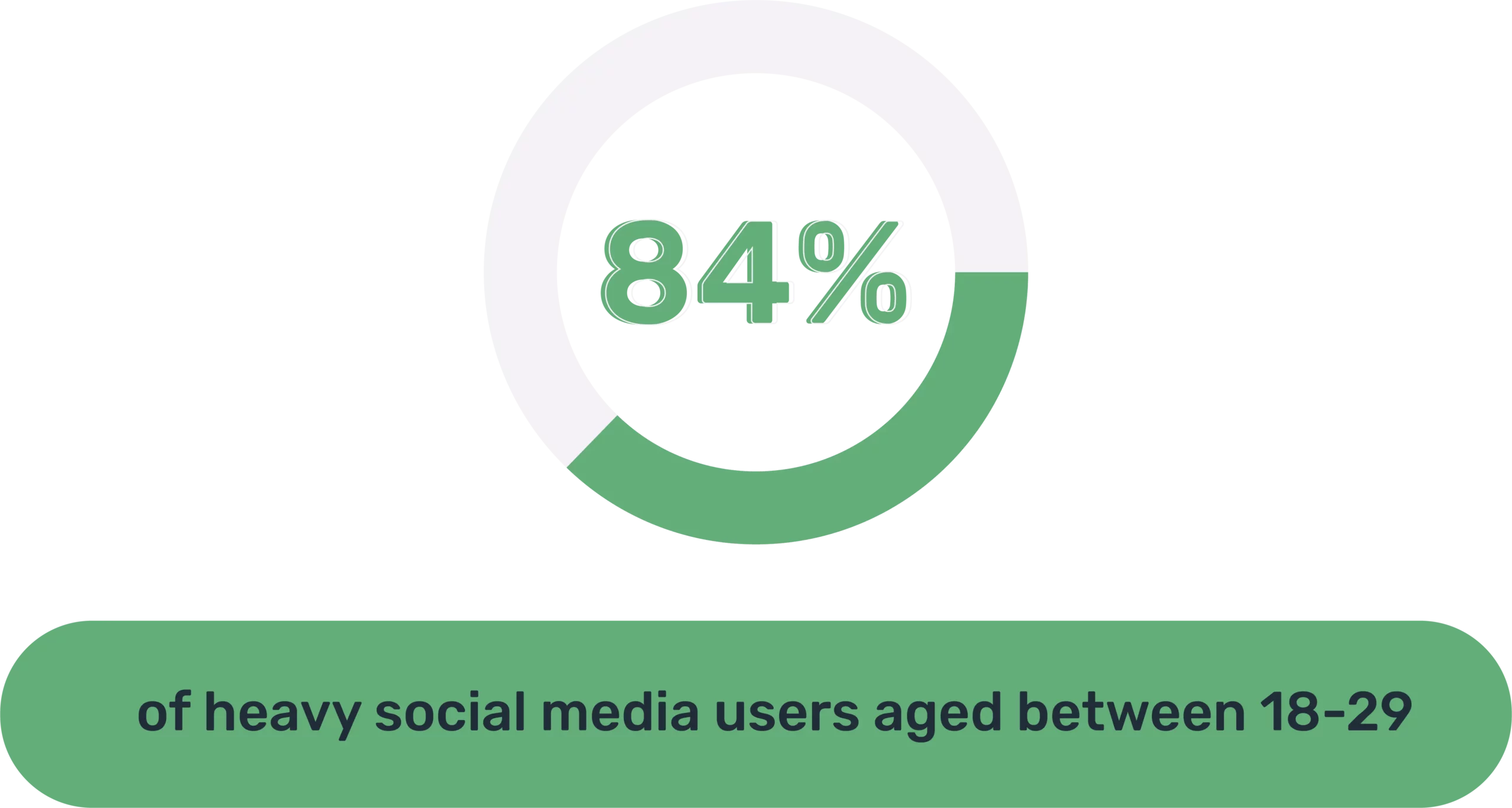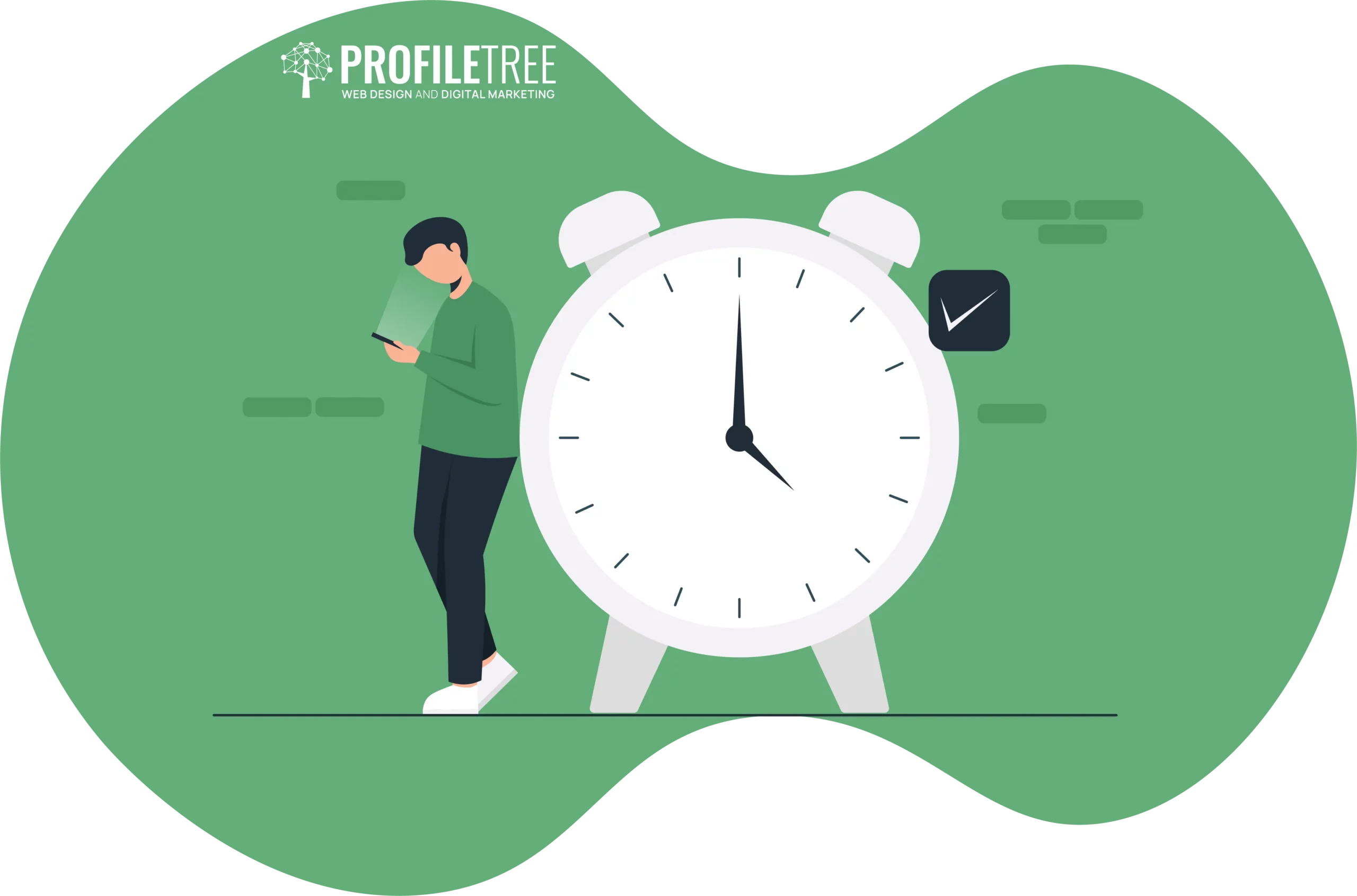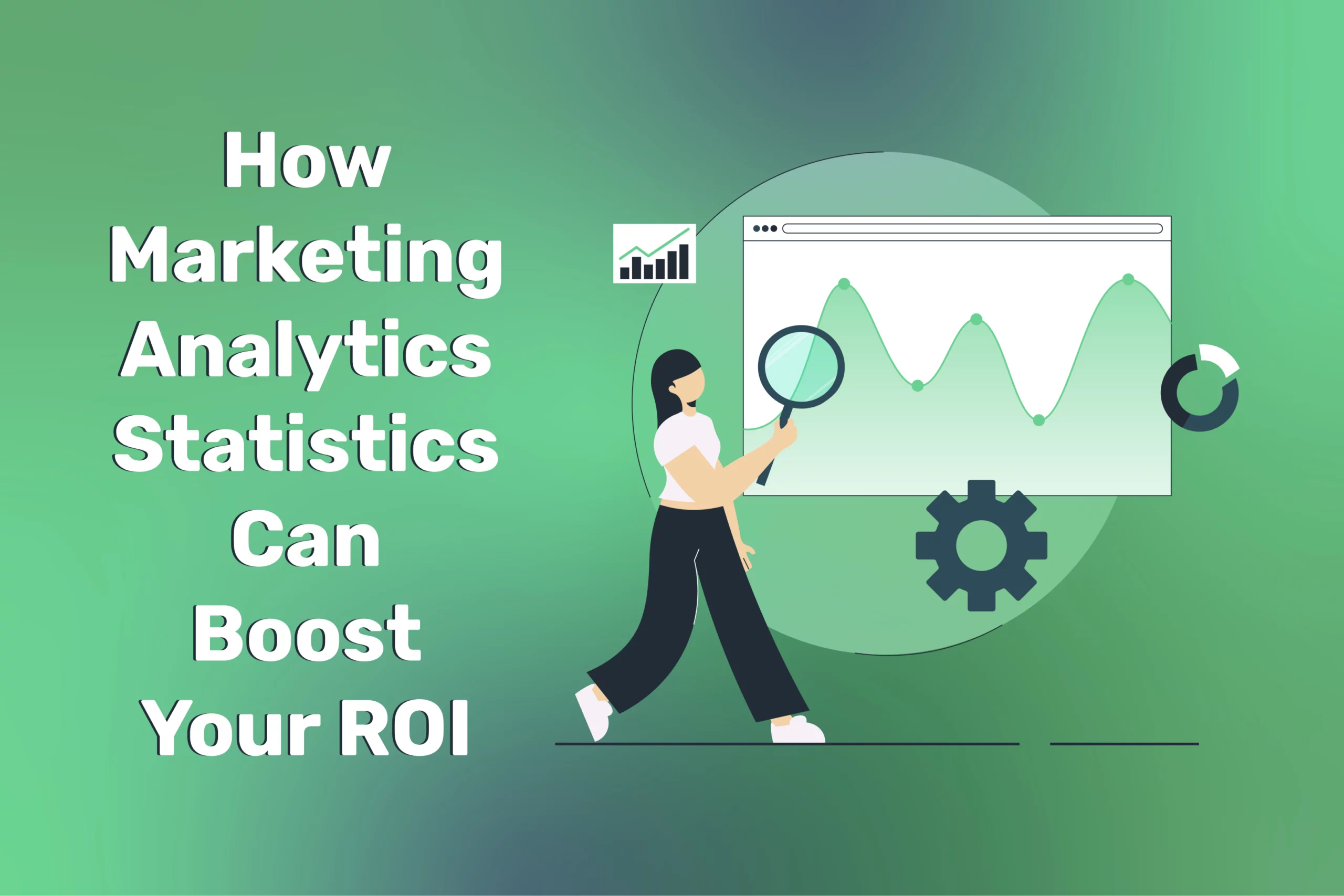The Attention Span Crisis in the Digital Age Explained—With Recent Statistics for 2024
Everywhere you walk around, everyone you encounter will be burying their noses into their little screens. We’ve grown so obsessed with using our smartphones that it has become the norm. Social media platforms are numerous today, giving us more reasons to surf the internet for longer. While we keep refreshing our feeds and searching for new trends, we become unaware of how we’re affected.
Social media has later proven to have a long-lasting impact on our mental health, contributing to an increase in depression and anxiety. This obsession was also proven to have a detrimental effect on our attention span. Looking closely, you’ll realise that today’s younger generations are so used to the fast pace of the digital world that they can barely keep their attention span long enough.
It’s safe to say that the heavy usage of social media on a daily basis plays a vital role in the significant decline of our attention span. Yet, there are other factors that contribute one way or another to losing our focus. Dive with us into the different ways our attention span has been damaged over the years.
There is an abundance of research indicating the detrimental impact of excessive social media usage and multitasking on our cognitive abilities, memory retention, and sustained focus. As we increasingly immerse ourselves in the fast-paced world of instant information and instant gratification, our brains undergo adaptations that undermine our capacity for deep, concentrated thought.
As seasoned internet users, we often find ourselves immersed in a captivating world of social media, where every swipe brings forth a wealth of fresh insights and stories. These irresistible moments not only trigger a remarkable surge of dopamine in our brains, but they also serve as a clever strategy to damage our ever-fleeting attention span.
Technology was initially designed to assist humans, but it has rapidly evolved into an essential component of our lives. Its pervasiveness is evident through the incessant notifications we receive, the overwhelming influx of information, the lack of relevance in the data presented, and the prevalence of targeted advertisements.
Unfortunately, these factors collectively contribute to a noticeable decline in our attention spans. As we dive deeper into this interconnected world, it becomes increasingly important to critically analyse how technology impacts our ability to focus and concentrate.
Social media platforms have mastered the art of keeping us hooked through powerful triggers known as notifications. These clever alerts are specially designed to grab our attention and entice us to check our social media accounts. But there’s more to it than that.
Personalisation plays a significant role in keeping users engaged. By analysing our behaviour, interests, and demographics, social media companies can curate content that aligns with our preferences, making it more likely to captivate us and keep us hooked.
To further enhance this engagement, they tap into a psychological concept known as social validation. This concept explains how individuals seek others’ approval to determine what is socially acceptable or desirable.
- More than 33% of the total population of the world uses social media on a daily basis.
- The average user of social media spends around 2 hours every day on various platforms.
- Over 50% of millennials in America have professed to be addicted to social media.
- Around 71% of teenagers and young adults have confessed to having a social media addiction.
- Women were proven to spend more time on social media than their male counterparts, spending an average of 2 hours a day, while men spend 20 minutes less.
- 84% of heavy social media users aged between 18-29
- Older generations, aged 50 to 64, make up 73% of social media users.
The Average Attention Span Duration Across Different Generations, Mainly Millennials and Gen Z
- According to different studies, our attention span has significantly decreased by almost 4 seconds in the last 15 years.
- The attention span of millennials lasts no longer than 12 seconds, while that of Fen Z taps out at 8 seconds.
- When it comes to watching ads on social media, Gen Z loses their focus after around 1.3 seconds, less than older age groups.
Apparently, recent statistics show an alarming difference in the focus duration of different generations. Since social media plays a big role in impacting our ability to focus, it only makes sense that Gen Z experiences the shortest span. This generation was raised in the era of advanced technology, not to mention that they are the heaviest users of social media platforms.
We believe it’s important to delve deeper into the issues altering our attention span. The more aware we are of the factors causing the attention deficit, the better understanding we have of this phenomenon.
Over the years, social media has revolutionised the way we connect with one another. Many of us can still recall the humble beginning of staying connected with our friends and family through MySpace — a name that baffles many Gen Zs. Facebook was the groundbreaking breakthrough that shaped social media as we know it.
Marking the beginning of a new era, Facebook paved the way for the rise of multiple online communities and platforms. Today, Instagram, TikTok, and Twitter are equally significant in the social media world. With each of them offering different approaches and means of communication, nobody wants to miss out. As a result, not only did all of these platforms shape the digital landscape, but they also contributed to our short attention spans.
2. Short-Form Content
The heavy usage of social media has significantly contributed to the shortened attention spans of today. Yet, the content form is to be blamed as well and not in terms of the content itself, but in the promotion of short lengths. Studies have proven that being accustomed to short-form content trained our brains to lose focus after 8 mere seconds.
Also known as bite-sized content, it enables users to swiftly scan through new updates without having to read them thoroughly and mindfully. Not only is short and digestible content now deemed preferred by social media users, but it also helped in producing a larger volume in a shorter time. This has also paved the way to bombard you with an overwhelming array of entertainment options.
It’s important to note that the short-form content promoted on social media not only gets social media users accustomed to brief stimulation, but the large volumes help keep them engaged. Since social media platforms are plenty with an endless production of updates and news, people have developed what is known as the syndrome of endless scrolling.
In many cases, the addiction to social media leads one to keep scrolling across different platforms aimlessly. It’s one of the greatest factors that impact our attention spans, keeping us engaged for hours and unable to keep our focus on daily tasks. Addictive features like constant notifications, infinite feeds, and auto-playing videos are among the factors that lead to the endless scroll phenomenon.
How many times have you found yourself closing one social media platform and swiftly travelling to another? Well, it’s hard to tell. However, social media addiction leads to that high frequency of going round and round from one platform to another. Experts believe that this behaviour is fuelled by FOMO, the fear of missing out.
It’s a psychological disorder that describes the anxious feelings we experience when we think we may miss important events that others are sharing on social media. This can lead one to spend more time on the internet. And although one can get bored seeing the same newsfeed, they will switch to another platform in the hopes of coming across some thrilling updates. It’s quite apparent that this frequent switching is another factor that contributes to shortened attention spans.
5 Simple Tips That Can Help in Improving Your Attention Span
Losing our focus can be pretty frustrating. It’s become a real problem, especially if it starts getting in the way of carrying out the simplest of tasks every day. Now that we are pretty sure that heavy usage of social media contributes to our short attention span, it’s time to take action. Here are simple tips that can help keep you grounded and improve your focus to be more productive:
1. Monitor Your Screen Time
Since social media plays the most prominent role in impairing our focus, it’s important to employ mindful practices. Cutting it off ultimately may be a bit of a stretch to many people, especially those who depend on it for work purposes. Thus, make sure you monitor your screen time and manage your online presence. Interestingly, all smartphones now can help you limit your screen time by just setting your alerts on.
2. Take the Time to Relax
One of the reasons our brains experience fogginess is exhaustion. We’re always in a standby mode, not giving ourselves enough time to relax. Getting adequate sleep is essential in providing your brain with the rest it needs. Engaging in meditation and other relaxing practices also goes a long way in reducing brain stimulation and giving it a chance to concentrate for longer.
3. Eliminate Distractions in Bedroom
Feelings of burnout are common in today’s fast-paced world, and sleep deprivation contributes to such feelings. The quality of your sleep goes a long way in making you feel refreshed and invigorated the following day. So, make sure you eliminate distractions before your sleep time. Reduce using social media so close to your bedtime, for the blue light that comes from the screens keeps the brain alert for a long.
4. Learn Delayed Gratification
Among the main reasons that our attention spans are affected by social media is the craving for quick stimulation it provides. This is where the importance of learning delayed gratification comes in handy. It refers to the ability to resist the temptation of an immediate reward and instead opt for a more advantageous one in the future. So, the next time you feel tempted to reach out to your phone, make sure you are done with a specific task beforehand, then reward yourself.
5. Consider Taking A Brisk Walk
Exercise offers a boundless array of benefits that reach far beyond simply staying fit. One particularly fascinating advantage lies in its remarkable ability to enhance your focus and concentration. If you’re trying to extend your attention span, a superb approach is to dedicate just 30 minutes per day, four or five times a week, to a brisk walk. This routine promises to unlock a world of improved cognitive prowess.
Now that you have had all the secrets to an improved attention span unlocked, it’s time to put this knowledge to good use. It’s evident that social media has become an ingrained part of our daily lives, yet harnessing its power for our own benefit is far more rewarding than succumbing to the alluring abyss of mindless scrolling.
